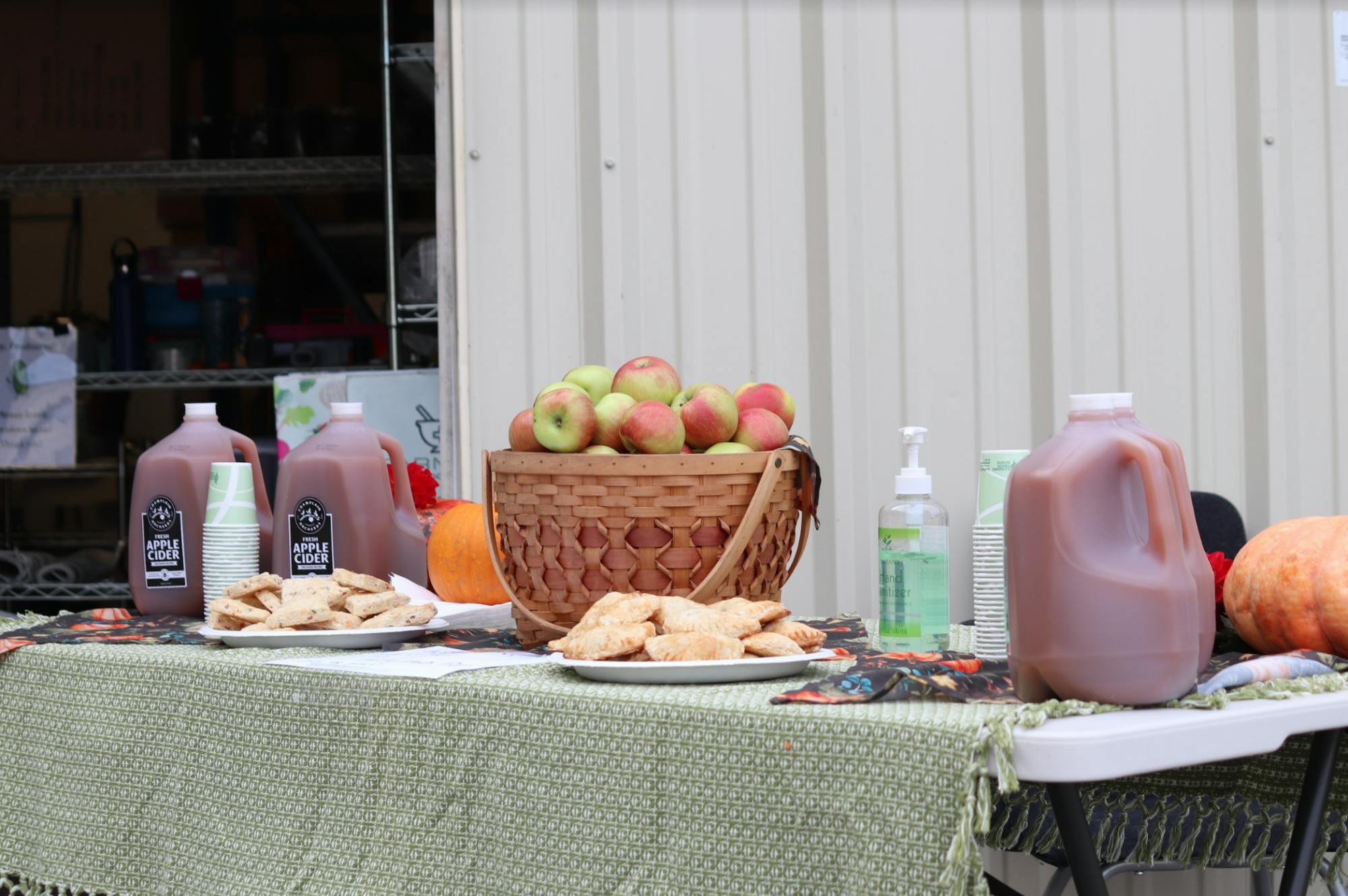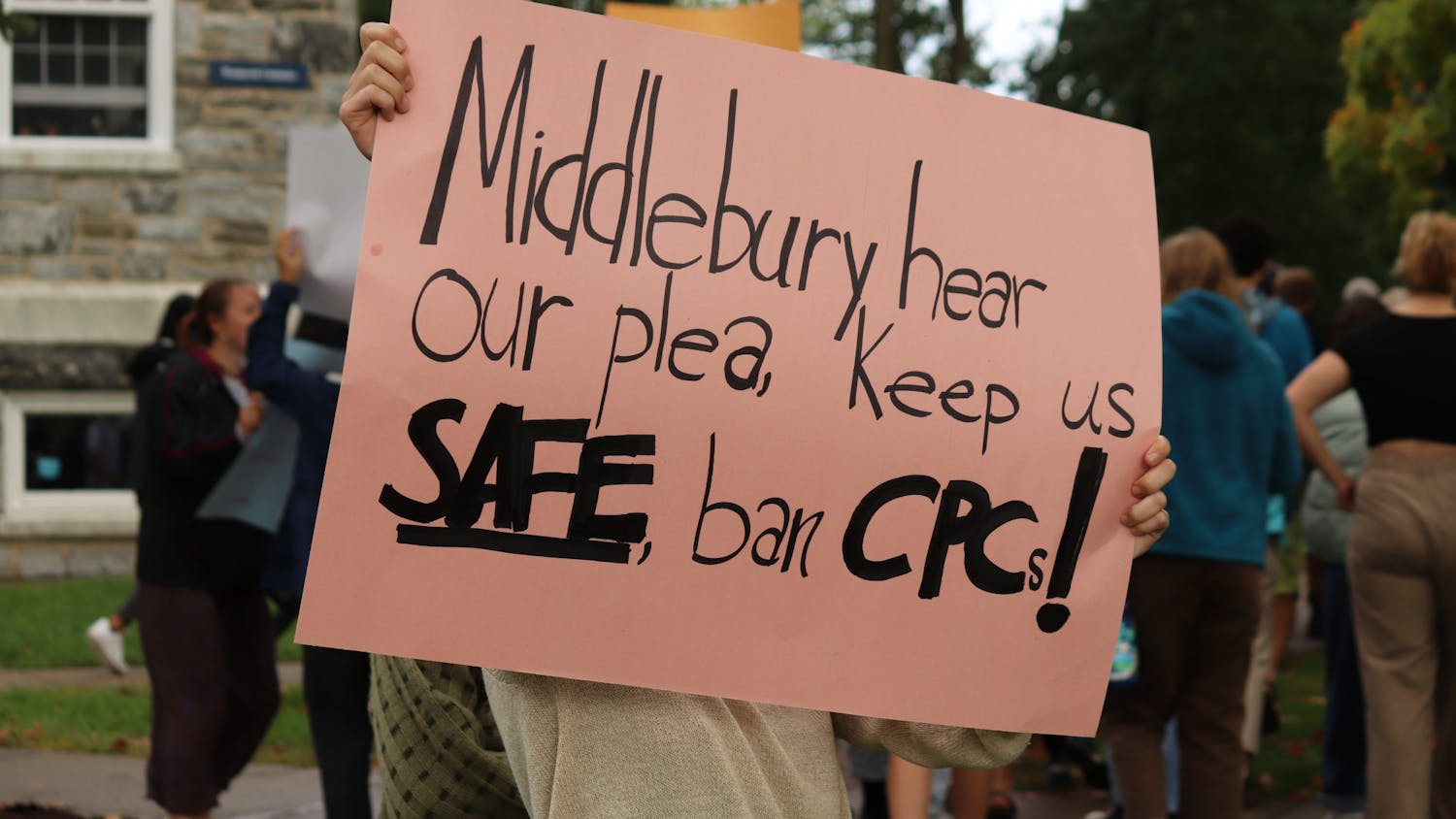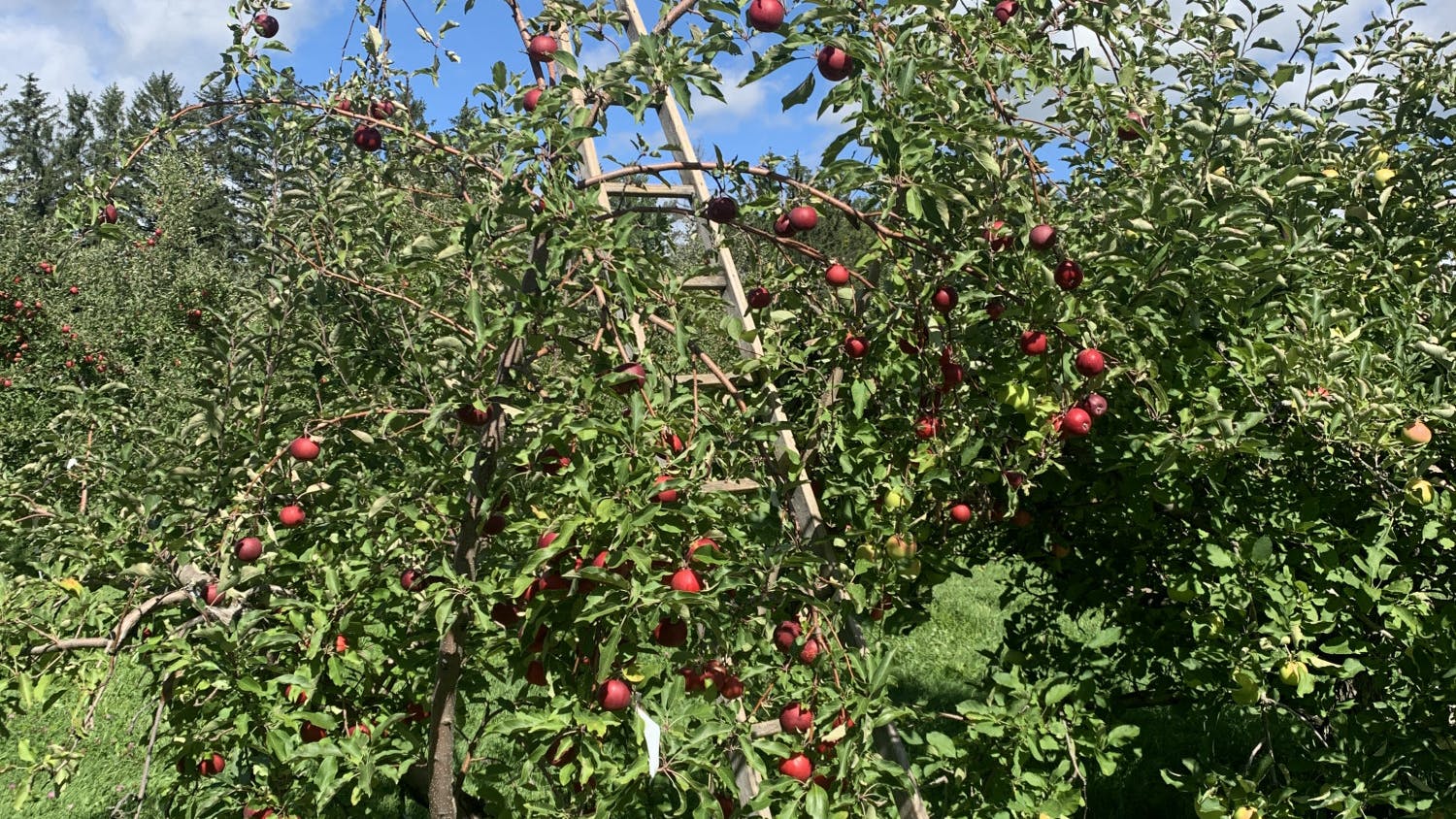The Addison County Relocalization Network (ACORN) opened its very own Food Hub on Exchange Street in Middlebury on Tuesday, Oct. 4.
The Food Hub provides wholesale buyers in Middlebury and surrounding areas with the opportunity to support local farms and produce suppliers. Prior to the opening, the Food Hub solely existed online as a wholesale market, where farmers or producers of value-added products, which change physical form over the production process to increase their value such as flour or jam, could sell their products to local customers. With this new expansion into a physical location, ACORN aims to increase its presence in the community.
ACORN is a board-driven network and nonprofit organization that was founded in 2005 with the mission of revitalizing Addison County’s local economy and public life. “[ACORN serves] as a catalyst for developing local, sustainable, and collaborative solutions to the challenges facing Addison County Communities,” according to its website.
ACORN derives its understanding of “relocalization” from the Post Carbon Institute, a California-based think tank focused on information related to community resilience in the face of climate change, the website states. The institute focuses on three areas of local revitalization; food, energy and money, which ACORN has adopted.
Within the domain of food, the ACORN network prioritizes sustainable development and locally sourced food through working with partners such as small- and medium-sized farms and colleges. Some of their past initiatives have included the ACORN Wholesale Collaborative, which increased research into the barriers to purchasing local food as well as organized events to bring new buyers and sellers together. Another past initiative was the Farm-To-School program for elementary-aged children, which aimed to bring local food into schools to increase nutrition while supporting the local farm community.
The Food Hub combines successful aspects of previous ACORN initiatives, while also opening the door for a more integrated facility. Aggregation, storage, processing, distribution and marketing of local foods are all supply chain elements that the Food Hub will facilitate and support.
ACORN is one player in a system of eight food hubs working to move locally sourced products in and out of Vermont and New York States.
Plans for development of the Middlebury Food Hub began in the fall of 2021, when ACORN partnered with the Champlain Valley Office of Economic Opportunity (CVOEO). The Food Hub shares CVOEO’s warehouse space in Middlebury.
“This partnership enabled us to get the Food Hub off the ground and to pilot it without a lot of capital investment,” Lindsey Berk, executive director of ACORN, wrote in an email to The Campus. “We are extremely grateful for our partnership with CVOEO.”

The Food Hub’s primary function is to bridge the gap between farmers, food producers and members of the community. The rural nature of Addison County makes it difficult for many farms to transport food safely and efficiently.
“The [Food Hub] is a centralized space with dry, cold and frozen storage that helps ease the challenge of accessing these small and medium farms,” Berk wrote.
In designing and implementing the Food Hub, Berk and ACORN gathered an array of perspectives from farmers and food producers across Addison County.
“We want to make sure the Food Hub provides solutions for small and medium sized food producers across product categories,” she wrote.
The Hub has also developed practices on the consumers’ side to encourage equal access and equitable distribution, two concepts central to ACORN’s mission.
This past summer, the fourth year of ACORN’s “Farmacy: Food is Medicine” program was housed in the Food Hub. Through this program, physician-recommended clients can access local food to treat diet-related illnesses; it also helps address food insecurity and supports local farms.
ACORN still faces challenges regarding peoples’ perceptions of high prices and the inconvenience of purchasing local food compared to simply going to the grocery store. Berk noted that the cheap price of grocery store products is made possible by government subsidies. “It doesn’t reflect the true costs and impacts on the health of the land, human and non-human beings who share this planet,” she said.
ACORN aims to protect and support local farms that don’t receive the same governmental subsidies, particularly now that Vermont land is facing intense development pressure. An additional restriction involves access to affordable housing for those who pursue work in local Vermont agriculture.
“The issues are complex and compounded,” Berk added.
ACORN has received various grants for staffing and infrastructure support. This funding, along with the partnership with CVOEO, allow for a centralized space for quickly unloading food products, or cross-docking, as well as short term dry, cold and frozen storage. The Hub also acts as a space for food systems businesses to drop freight shipments.
“The ACORN Food Hub increases access to markets for local food producers, promotes farm viability and contributes to a vibrant local economy,” Berk said.
The Food Hub also increases accessibility in offering local food in K-12 school cafeterias. Additionally, The Hub’s online presence allows easier access to local products for wholesale buyers in the restaurant and grocery industries, as well as at colleges and hospitals.
Berk and ACORN are currently working with CVOEO, as well as locally-based HOPE (Helping Overcome Poverty’s Effects) and Addison Allies, which are organizations that work to provide necessities for vulnerable populations, to evaluate the possibility of building a community commercial kitchen as part of the Food Hub.
“We are still fine tuning our processes, our marketing and sales practices and envisioning where this space can and should permanently live,” Berk said.

Emily Hogan '24 (she/her) is a Local Editor.
She is studying Environmental Policy with a minor in Math. In addition to writing and editing for the Campus, she also dances with the On Tap dance troupe and serves on the Environmental Council. She has previously worked with the Sustainability Solutions Lab at Middlebury.




